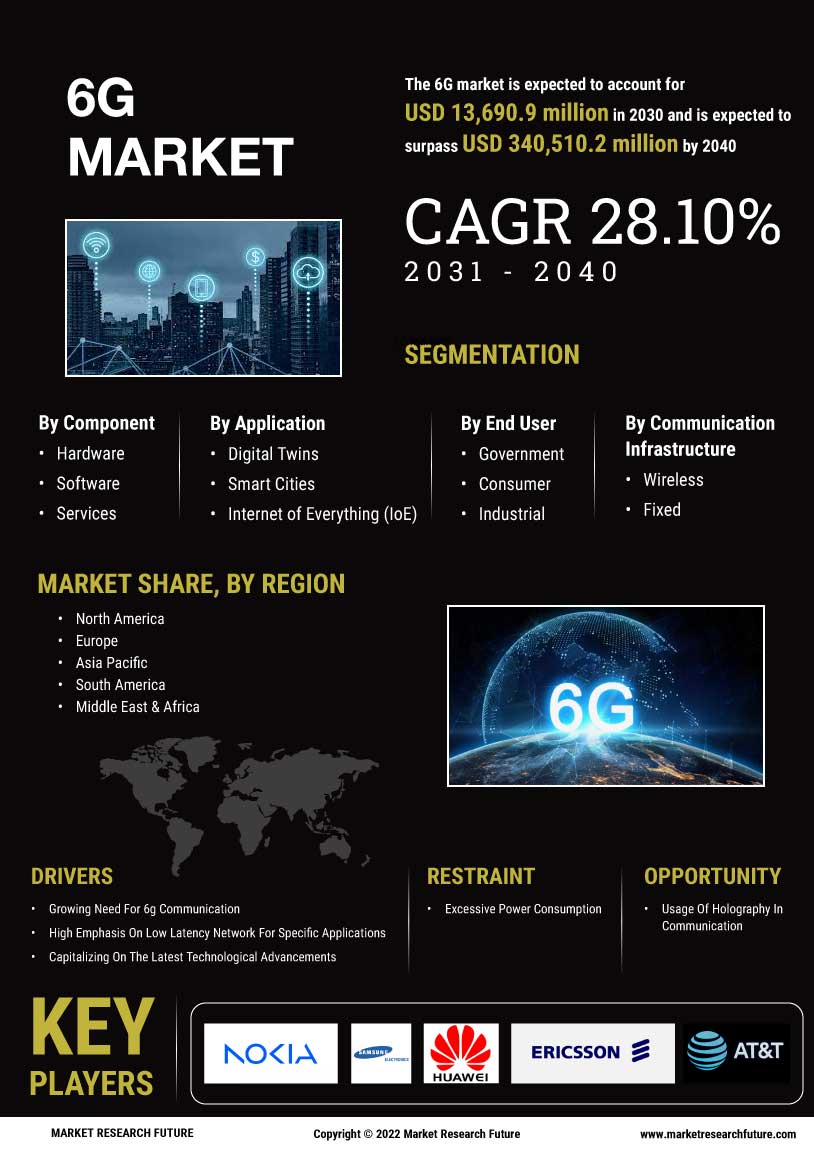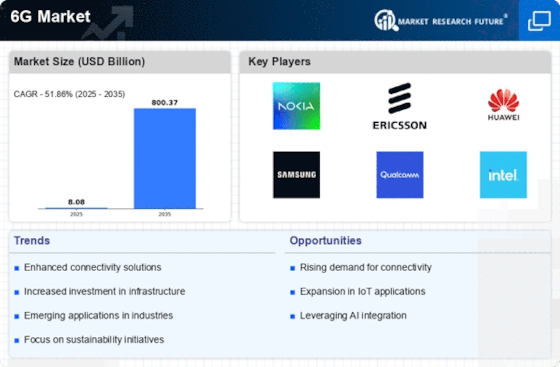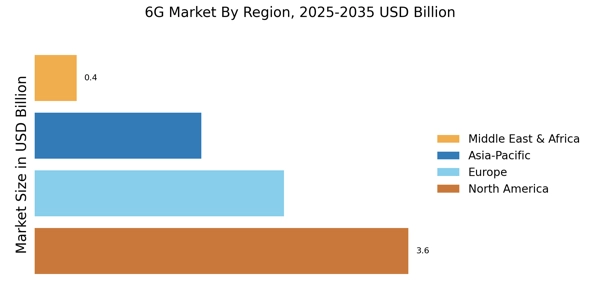Emergence of Smart Cities
The 6G Market is likely to benefit from the rapid development of smart cities, which rely heavily on advanced communication technologies. These urban environments will utilize 6G Market networks to integrate various systems, including transportation, energy management, and public safety. The implementation of smart sensors and IoT devices will create a seamless flow of information, enhancing the quality of life for residents. As cities increasingly adopt these technologies, the demand for 6G Market connectivity is expected to surge, driving innovation and investment within the 6G Market.
Enhanced Data Speeds and Capacity
The 6G Market is poised to revolutionize data transmission with anticipated speeds exceeding 100 Gbps, significantly surpassing current 5G capabilities. This enhancement in data speeds is expected to facilitate advanced applications such as augmented reality, virtual reality, and ultra-high-definition video streaming. The increased capacity will also support a higher density of connected devices, which is projected to reach 1 million devices per square kilometer. As a result, the 6G Market is likely to experience substantial growth driven by the demand for faster and more reliable connectivity solutions.
Advancements in Network Infrastructure
The evolution of the 6G Market is closely tied to the development of next-generation network infrastructure. This includes the deployment of advanced antennas, such as massive MIMO and beamforming technologies, which are essential for achieving the high data rates and low latency required by future applications. Investments in fiber-optic networks and satellite communication systems are also expected to play a crucial role in enhancing connectivity. According to industry forecasts, the global investment in telecommunications infrastructure is projected to exceed 1 trillion dollars by 2026, indicating a robust commitment to advancing the 6G Market.
Focus on Security and Privacy Enhancements
As the 6G Market evolves, there is an increasing emphasis on security and privacy measures to protect user data. The anticipated integration of advanced encryption techniques and AI-driven security protocols is expected to address the growing concerns surrounding data breaches and cyber threats. With the proliferation of connected devices, ensuring robust security frameworks will be paramount. The 6G Market is likely to see innovations aimed at enhancing user trust and safeguarding sensitive information, which could further drive adoption and investment in next-generation communication technologies.
Increased Demand for Remote Work Solutions
The shift towards remote work has created a heightened demand for reliable and high-speed internet connectivity, which the 6G Market is well-positioned to address. With the anticipated capabilities of 6G Market, businesses can expect improved collaboration tools, enhanced video conferencing, and seamless access to cloud-based applications. This trend is likely to persist as organizations recognize the benefits of flexible work arrangements. Consequently, the 6G Market may see a significant uptick in adoption rates as companies seek to leverage advanced connectivity solutions to support their remote workforce.


















Leave a Comment